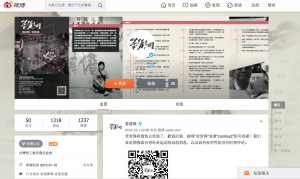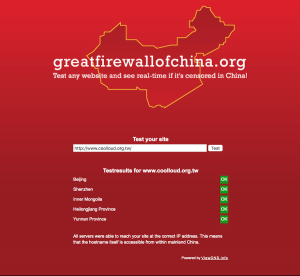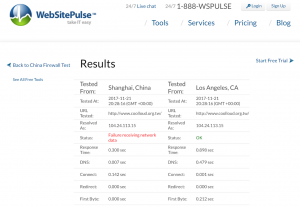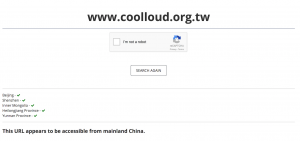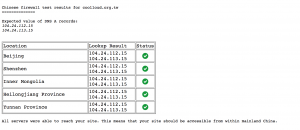by Brian Hioe
語言:
English /// 中文
Photo Credit: Brian Hioe
RESPONSES BY Coolloud leading figure Wang Haozhong to criticisms by New Bloom against its republication of statements by the “Protect The Family Alliance” and its pro-unification stance have been facile. Likewise, some of Wang’s statements seem to border on falsehood. Indeed, as a single editor, Wang’s perspectives cannot be said to represent Coolloud’s perspectives as a whole, but it is well known that Wang is a figure highly influential on Coolloud’s editorial direction at present. Such statements by Wang have taken place primarily on social media.
Such comments made by Wang took place within context of a as a large component of its coverage of this year’s pride parade, with 3 out of 8 articles being statements from the “Protect the Family Alliance”, this despite that Coolloud proclaims itself to be a left-wing media outlet. In the past, New Bloom articles have criticized Coolloud for an uncritically pro-China stance, as evidenced in articles in which China was termed the “motherland of socialism” or labelling the Sunflower Movement a right-wing, even fascist movement. We might here offer some responses to Wang’s criticisms, then.
 Coolloud articles on the pride parade this year
Coolloud articles on the pride parade this year
First, in response to criticisms that Coolloud has taken to reposting statements by the “Protect the Family Alliance” out of a strange, increasingly misguided attempts to distinguish themselves from the “mainstream” of the LGBTQ movement, Wang has claimed that Coolloud was merely seeking to show a plurality of viewpoints. But we might ask, is it true that Coolloud attempts to show both sides on every issue?
To begin with, no media outlet is ever objective. Media outlets which claim to be objective and show both sides of an issue oftentimes are actually masking their own subjective ideologies behind this claim to neutral objectivity. No surprise, then, that in already right-leaning America, the largest, most established, and most powerful right-wing media outlet, Fox News, has as its slogan, “Fair and balanced.”
Coolloud has itself in the past quite admirably positioned itself as a publication with its own left-wing partisan viewpoints and which is open about what these viewpoints are rather than attempting to disguise them behind a false objectivity. And so it is rather surprising to see Coolloud raise the issue of objectivity in order to try and defend itself.
But if Wang’s words are to be believed and Coolloud attempts to show a plurality of viewpoints, we might also ask, does Coolloud actually aspire to do this? It is indeed true that publications should not be reduced to simply a single perspective among what they post. Yet if Coolloud even intends to post articles from the Protect the Family Alliance, in regards to the recent changes in labor policy by the Tsai administration, Coolloud should also take to posting the perspectives of the capitalists who will benefit from exploitative labor policy, who justify their actions as benefiting society through the claim that their wealth will trickle down to the rest of society. Coolloud should also take to posting the perspectives of the Tsai administration which, funnily enough, has justified recent changes to labor policy precisely through the claim that it needs to balance the viewpoints of both workers and capitalists.
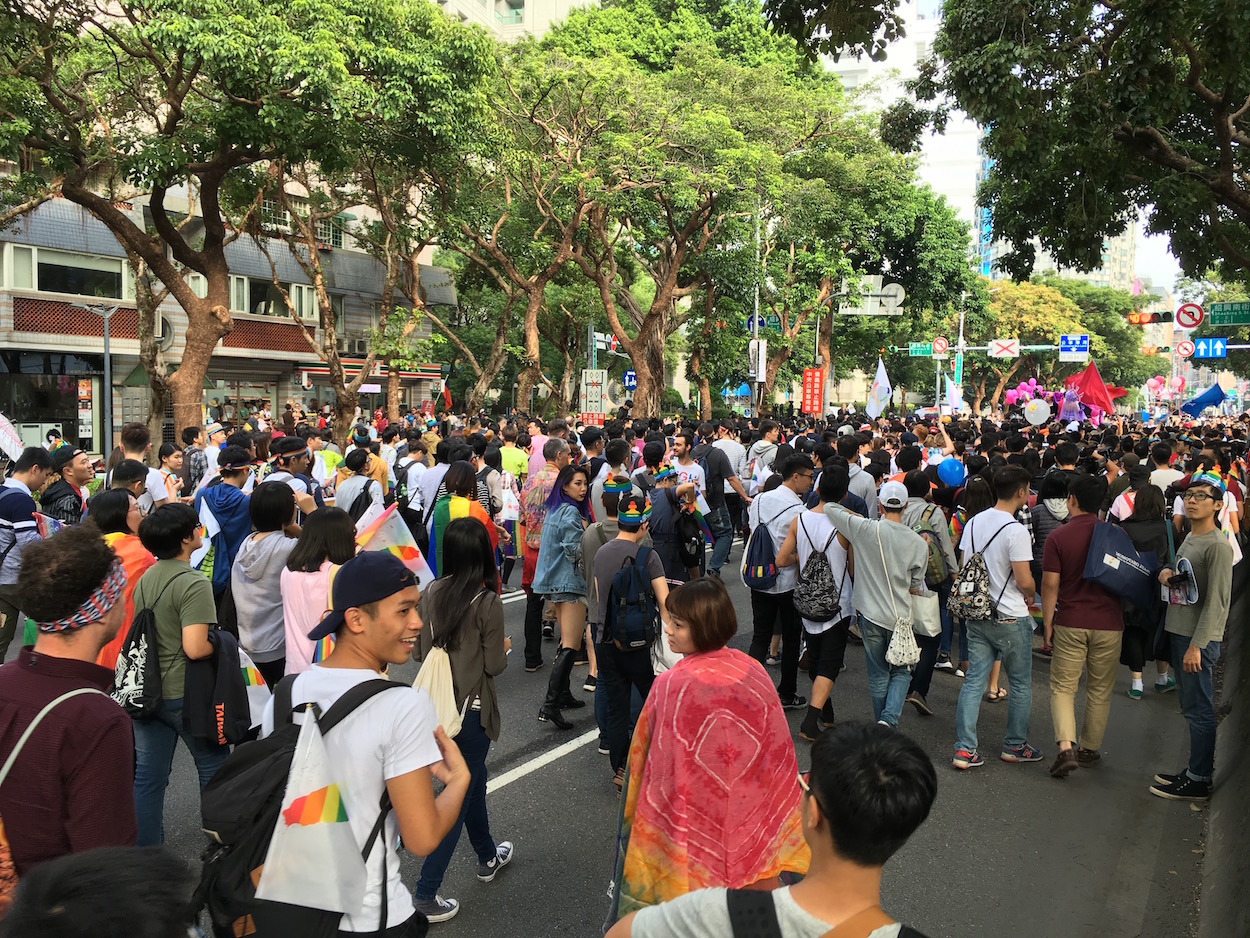 Photo credit: Brian Hioe
Photo credit: Brian Hioe
And, indeed, if Coolloud is so happy to post writings by homophobic bigots who view the gay as sexual deviants on the issue of same-sex marriage, regarding migrant workers, Coolloud should also be posting articles from Taiwanese racists who see migrant workers as uncivilized, racially inferior beings to be dominated and exploited by Taiwanese. Regarding land evictions, Coolloud should be posting defenses of land appropriations from from development companies that claim that developmentalism is necessary for Taiwan’s social welfare. On the issue of the environment, Coolloud should be posting articles from oil magnates who claim that Taiwan needs to use its natural resources to its utmost otherwise it will be left behind in terms of international competitiveness, never mind the destruction to the environment.
These are simply a few examples of issues upon which Coolloud should seek to represent a plurality of perspectives, then, if they are willing to post content by individuals as far right-wing as the “Protect the Family Alliance” who are, again, homophobic bigots who do not seem to really view gay people as human beings. But obviously, if Coolloud were to do so, it would quickly lose its reputation as a left-wing publication. This is what Wang’s comments miss.
Wang has sought to deflect attention from the issue by, first, attempting to scoff at New Bloom for its comparatively smaller readership compared to Coolloud—a sign of being petty more than anything, in the lack of any better criticism—and through attempting to claim that New Bloom simply evidences Taiwanese nationalism as a pro-independence publication. Likely Wang cannot logically argue out this issue, which is why he would try to change the topic. Rather than defend Coolloud against these charges, it seemed like an easier way out to shift the terrain of contestation and to try and attack New Bloom—a case of a large publication with funding attacking a smaller, less established publication which is completely a volunteer effort at present.
Indeed, Coolloud’s current pro-unification slant is evident in the extremely pro-unification articles it publishes suggesting that China is a veritable utopia on earth in spite of all evidence to the contrary and, unsurprisingly, the lack of any pro-independence left perspectives within the publication. The original article by New Bloom criticizing Coolloud suggested that the reason for Coolloud’s strange political positions in recent years is because of it feeling a need to position itself as opposed to the dominant trends of Taiwanese social movements, which lean in the direction of independence.
Coolloud’s WeChat account and Coolloud’s Weibo account
But seeing as gay marriage is an issue that does not actually have very much to do with the issue of independence versus unification, one actually does not need to bring one’s own views on the issue of independence or unification into the argument to see that Coolloud is simply engaging in attempts to be edgy and deliberately draw controversy with its political positions against the “mainstream” of contemporary Taiwanese social movements on the issues of independence/unification and regarding gay marriage. Funnily enough, someone could, in fact, be pro-unification and take issue with Coolloud’s posting of statements by the “Protect The Family Alliance”, or find phony Coolloud’s subsequent attempts to defend itself using claims that it merely seeks to represent a plurality of perspectives.
Yet most ironic of all may be Wang’s recent citation of an article in the Chinese state-controlled, Hong Kong-based Ta Kung Pao in which Ta Kung Pao labels Coolloud as pro-independence pan-Green media funded by Chen Shui-Bian to try and disprove accusations by New Bloom against Coolloud as pro-unification, suggesting even that New Bloom is not so different from Chinese state-run media in making these allegations against Coolloud. Wang also cites the claim by the article that Coolloud members have been blocked from entering Hong Kong due to past actions as a way of defending against the charge that Coolloud is uncritically pro-China.
But it may be quite hypocritical that Wang references Coolloud members being blocked from entering Hong Kong to try and defend Coolloud from the accusation that it is uncritically pro-China. It must be said firmly, Coolloud was not always the way it was now. At a certain point in time, it justifiably deserved its reputation as one of Taiwan’s leading left media outlets and not simply a Chinese nationalist outlet. This change towards uncritical Chinese nationalism occurred after Wang and his cohort took control of Coolloud, as evidenced in the publication’s sharp change in editorial direction after the Sunflower Movement. As such, are these individuals blocked from China even the same people running Coolloud now? One wonders.
Ta Kung Pao seems to have not gotten the memo where Coolloud’s shift in an editorial direction which is highly pro-China is concerned, something which Wang has taken up as a lucky bone accidentally thrown at him, likely. But what Wang is trying to do here is to use the reputation of the past Coolloud to defend the current Coolloud, an action which, frankly, is highly besmirching of Coolloud’s legacy in the history of the left in Taiwan.
It is hard to judge if Coolloud is blocked in China or not. Most website testing tools show that Coolloud is able to openly accessed in China while some website testing tools show Coolloud’s website as blocked in China. Either way, Coolloud is able to maintain a WeChat and Weibo presence
Indeed, although Coolloud’s website sometimes seems to encounter issues being accessed from within China, either way, Coolloud is easily openly accessed in China through its WeChat and Weibo account, with primary updates occurring on WeChat, on which Coolloud post a selective articles which would not provoke the Chinese party-state. As has provoked anger in Taiwan before, seeing as Coolloud fundraises in Taiwan at the same time as it seeks donations in China, Coolloud even openly solicits donations from within China using its WeChat account.
It is in fact rather deceptive of Wang to suggest, then, that Coolloud members blocked from China is a sign of Coolloud not being as uncritically pro-China as New Bloom has alleged or to allege that the Chinese government is opposed to the current Coolloud in some way. Apart from the basic question of it being up in the air whether these are the same people running Coolloud now, if not for China’s tacit approval, there would be little way for Coolloud to post articles on the Chinese Internet or even fundraise within China. Coolloud would have long since had its WeChat account shut down, much as occurred with the shutting down of the similar publication Ground Breaking, which originated from China despite many in Taiwan thinking Ground Breaking was a publication from Hong Kong.
Wang cannot be unaware of this himself. After all, video footage in fact shows that donations made to Coolloud through WeChat are transferred directly into Wang’s personal account, also another sign of the large sway Wang holds within Coolloud at present. Yet, again, this posting of articles in China requires self-censorship. Ironically enough regarding this whole controversy concerning Coolloud’s posting of articles by the Protect the Family Alliance about this year’s pride parade in Taipei, what is notably lacking on Coolloud’s WeChat account is any mention of the pride parade whatsoever. After the ruling by the Council of Grand Justices last year, Chinese media sought to crack down on mentions of gay marriage in Taiwan because this would draw attention to China and Taiwan having different political systems, something I was informed of by friends working in Chinese media who originally hoped for me to write on the issue.
 A notable gap in the articles Coolloud posted on its WeChat account where articles covering this year’s pride parade should have been
A notable gap in the articles Coolloud posted on its WeChat account where articles covering this year’s pride parade should have been
However, the fact that Coolloud only posts content on their WeChat that will not offend the Chinese government also shows that Coolloud does not simply idealize China out of lacking knowledge about China’s authoritarian practices, and is wholly aware of them. This occurs even while it attempts to convince Taiwanese that China is a democratic socialist utopia, as can be seen in recent articles claiming that China is the “motherland of socialism” or claiming that Taiwan needs to learn from the greatness of Chinese civilization.
On the other hand, while praising supposedly China’s socialist government, Coolloud’s hypocrisy regarding its uncritically pro-China stances is evident in consideration of that LGBTQ activists in China currently face an unprecedented crackdown under Xi Jinping and domestic repression against labor activists in China—what Coolloud has sided with is, in fact, more or less the Chinese party-state—the greatest enemy of sexual freedoms in China and the Chinese working class. In its writings on China and rosy view of China, one never really has the sense that Coolloud has any real connection to Chinese activists or workers, much more so to uncritical nationalist academics. In light of Taiwanese sometimes are lacking in knowledge of China, as well as that Coolloud is clearly aware of China’s practices if it self-censors to maintain a WeChat and Weibo presence, is it that Wang simply thinks Taiwanese are ignorant enough about China that he can simply pull the wool over their eyes? And at the same time, Wang dares to use the reputation of the past Coolloud to try and defend the actions of himself and the other individuals currently running Coolloud?
Nevertheless, it will not be surprising if Wang or other Coolloud members attempt to continue to defend Coolloud—as well as that there will continue to be individuals who give Coolloud more credit than it deserves, largely still perceiving Coolloud regarding its past reputation before Wang and his cohort took over running the publication. It is as such that Coolloud seems to have served as a convenient vehicle for the ideas of Wang and his cohort because of their ability to coast off of the past reputation of Coolloud and make people take their ideas more seriously than they should be taken. But, if so, this would be a sad conclusion for a once great publication.


